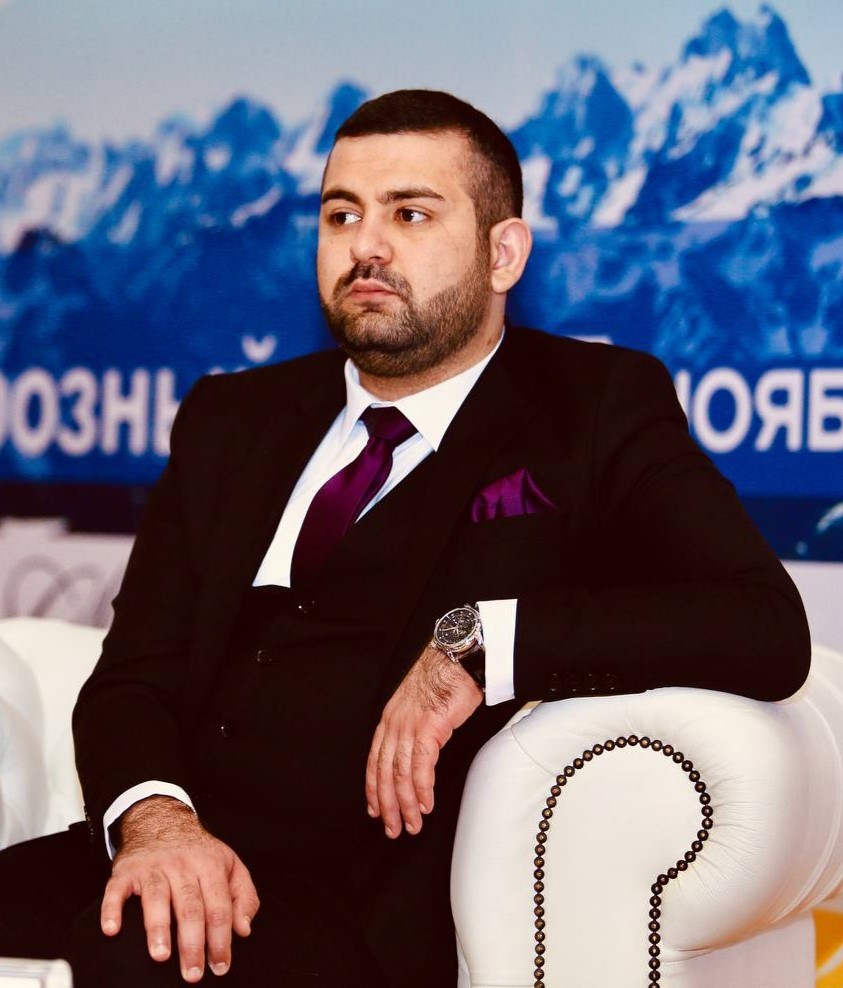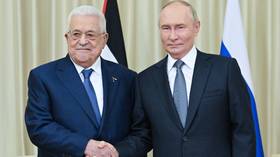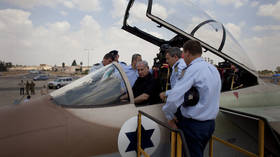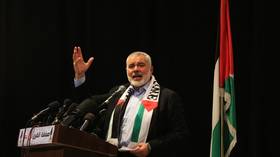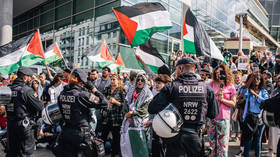Putin meets Abbas: Why the Russia-Palestine partnership endures
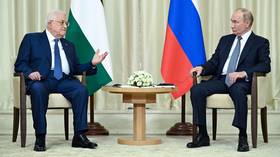
The Middle East is currently engulfed in a state of profound uncertainty, exacerbated by the ongoing conflict in Gaza and the escalating tensions between Israel and Iran following the assassination of Hamas Political Bureau Chief Ismail Haniyeh in Tehran. In this volatile environment, some actors are compelled to seek clarity and reinforce their strategies. This is evident in the actions of President Mahmoud Abbas of the Palestinian National Authority, who made a working visit to Moscow from August 12 to 14, his first since 2021.
During his visit, Abbas held a three-hour closed-door meeting with Russian President Vladimir Putin. Following the discussions, Abbas expressed hope for continued humanitarian support from Russia, emphasizing that Palestine is in dire need of assistance given the complex situation it faces. He highlighted that cooperation with Russia in the realm of humanitarian aid is crucial for the survival and well-being of the Palestinian people. President Putin, in turn, reaffirmed Moscow’s commitment to providing comprehensive support to Palestine, underlining Russia’s active role in assisting the Palestinian cause.
Russia and Palestine: A long history of relations
The relationship between Russia and Palestine has deep roots, which can be traced back to the 19th century when the Russian Empire began to expand its influence in the Middle East. During this era, Russia played a crucial role in protecting Orthodox Christians living in Palestine, as well as facilitating the construction of churches and monasteries in the Holy Land. The Russian Orthodox Church established numerous spiritual missions in the region, which not only supported religious life but also played a significant role in strengthening cultural and educational ties. The Russian Empire was actively involved in the political life of the region, aiming to enhance its influence in Palestine while supporting the Christian population. These historical connections laid the foundation for the later development of relations between Russia and Palestine, which continued to strengthen during the Soviet and post-Soviet periods.
The Soviet Union was one of the first states to recognize the Palestine Liberation Organization (PLO) in 1974 and actively supported the Palestinians in their struggle for self-determination. The USSR played a vital role in providing political and diplomatic backing to the Palestinian people, as well as in offering military and economic assistance. At the time, Moscow viewed this support as a critical element in the fight against imperialism and in the spread of communism among Arab states. This backing continued even after the collapse of the Soviet Union, with Russia assuming the role of one of the principal advocates for Palestinian statehood on the international stage. However, the focus later shifted to stabilizing the region and implementing UN resolutions. Moscow has maintained this course, consistently expressing its commitment to actively participate in resolving the Middle East conflict and supporting the Palestinians’ right to establish their own state with East Jerusalem as its capital.
Over the past decades, Russia has steadfastly advocated for a peaceful resolution to the Israeli-Palestinian conflict, endorsing the creation of an independent Palestinian state that would coexist peacefully with Israel. Moscow is actively involved in international forums, such as the Middle East Quartet, which also includes the UN, the EU and the US, aimed at facilitating peace in the region. In these efforts, Russia strives to maintain a balance by engaging in dialogue with various Palestinian factions, including Fatah and Hamas. This approach allows Moscow to play a pivotal role in mediating between different sides of the conflict, thus solidifying its position as a key player in international diplomatic efforts to stabilize the region.
In addition to political support, Russia provides substantial humanitarian aid to the Palestinian people. Amid ongoing conflicts and severe humanitarian challenges in the Palestinian territories, Moscow offers financial assistance, delivers humanitarian supplies, and supports medical and educational programs. Russian humanitarian initiatives include the provision of food, medicine, and equipment, as well as educational opportunities for Palestinian students at Russian universities. This aid is a crucial aspect of Russian-Palestinian relations, demonstrating Russia’s commitment to supporting the Palestinian people in difficult circumstances.
The frequent visits of Palestinian leaders to Moscow and regular high-level contacts highlight the importance of this relationship for both sides. Russia views Palestine as a key partner in the Middle East, which is reflected in Moscow’s active involvement in international efforts to achieve peace and stability in the region. In turn, the Palestinian National Authority (PNA) regards Russia as one of its primary allies, capable of supporting its aspirations for independence and prosperity. These interactions are underpinned by Moscow’s long-term policy aimed at strengthening ties with Palestine and its people, underscoring the strategic nature of the relationship between the two countries and its significance for both parties in the global context.
A visit of strategic importance
It seems that the primary purpose of Mahmoud Abbas’s visit was to engage in consultations and exchange views on the latest developments in Palestine and the international arena. A crucial aspect of this visit was also the coordination of positions and the strengthening of bilateral relations across various spheres, particularly considering Russia’s influence in global politics, its permanent presence in the UN Security Council, and its significant role in the Middle East. Mahmoud Abbas emphasized that the relationship between Palestine and Russia has always been marked by historical depth and resilience and continues to evolve.
At first glance, this visit might be seen as a routine diplomatic effort aimed at bolstering ties with Moscow and improving the PNA’s negotiating stance in future talks with Israel. However, the situation is far more complex, especially in light of the recent escalation of conflict that began on October 7, 2023. Washington has been actively trying to involve the PNA in discussions about the post-war governance of Gaza and other Palestinian territories, while Hamas representatives have repeatedly reached out to Moscow. Moreover, during negotiations with Israel which were mediated by Egypt, Qatar, and the US, Hamas insisted on including Russia among the guarantors of any post-war settlement. In this intricate geopolitical landscape, it is crucial for President Abbas to maintain balance in his external relations and secure Moscow’s support, in order to strengthen the PNA’s position and ensure its influence in the future governance of Palestinian territories.
The standing of Abbas’s party Fatah has weakened considerably among Palestinians in comparison to Hamas. Amid the ongoing conflict in Gaza, an increasing number of Palestinians, even in areas traditionally loyal to Abbas, are beginning to sympathize with Hamas. The Israeli raids on the West Bank, which occur on a weekly basis, have resulted in the arrest of hundreds of Palestinians who support the group. The PNA has been unable to counter these actions, further undermining its position. Additionally, socio-economic and political challenges continue to exacerbate the population’s dissatisfaction with Abbas’s administration.
In this context, Moscow’s support could be crucial for Abbas in the future. As previously noted, the Soviet Union was a staunch supporter of the Palestinian struggle for statehood, a stance that has persisted in Russia’s contemporary foreign policy. Moscow consistently advocates for a long-term and just resolution of the Israeli-Palestinian conflict, endorsing the concept of peaceful coexistence between Arab and Jewish states. Furthermore, Russia maintains strong and trustworthy relations with various Palestinian factions, including Hamas and other resistance groups, enabling it to play a significant role in mediation and dialogue in the Middle East.
These contacts are rooted in Moscow’s long-standing policy of engaging with all parties involved in the Israeli-Palestinian conflict. Unlike many Western countries, Russia seeks to exclude no one from the dialogue, allowing it to act as a mediator capable of negotiating even with groups that other international players have deemed irreconcilable. This approach not only helps Moscow to reinforce its influence in the region but also contributes to the search for the compromise solutions necessary for achieving a lasting peace.
President Abbas is well aware that among all the major international players, Russia possesses a unique ability to bring together the various Palestinian factions and achieve a consensus. Although the most recent reconciliation between Palestinian groups was facilitated by China, it was the long and painstaking work of Russian diplomats that laid the groundwork for successful dialogue. Palestinians also recognize that the primary global intermediaries, such as Western countries, have traditionally taken a more pro-Israel stance. In this context, Abbas’s statement before his trip, in which he highlighted the importance of the Middle East Quartet, created to coordinate efforts toward a peaceful resolution of the Arab-Israeli conflict, is particularly telling.
Abbas hopes that with the possible positive outcome of the prolonged negotiations mediated by Egypt, Qatar, and the US, and the end of the conflict in Gaza, the governance of the entire sector should be transferred to the PNA and Fatah. To avoid a repeat of the “civil war” between Fatah and Hamas, as occurred in 2006 when the two political forces fought for control of Gaza, Abbas needs the backing of Russia and Türkiye, which is why he headed to Türkiye immediately after his visit to Moscow.
A world on edge
The world stands on the edge, with the Middle East once again at the epicenter of global tensions. The stakes are high, not only for the region but for international peace and security. As President Abbas continues his diplomatic efforts, the hope for a resolution to the Palestinian-Israeli conflict remains faint but not entirely extinguished. However, the road ahead is fraught with challenges, and the potential for further bloodshed is ever-present. The question now is whether the international community can muster the political will and strategic foresight to prevent the situation from spiraling out of control – or whether we are witnessing the prelude to a new and even more destructive phase in the history of the Middle East.
At present, no future prospects are clear and virtually none of the possible developments are off the table. At the very least, one must acknowledge that Israel and its allies are unlikely to allow the unification of Palestinian forces. The art of politics in this region has always revolved around the principle of ‘divide and conquer’. Despite ongoing diplomatic efforts, the situation in the Middle East is marked by extreme uncertainty and escalating tension. The assassination of Ismail Haniyeh in Tehran has left the world holding its breath, anticipating Iran’s potential response against Israel. The increasing military presence of the US and its allies in the region has significantly heightened the risk of the conflict escalating into a full-scale war that could engulf the entire Middle East. In such an environment, many smaller and mid-sized players are seeking the support of major powers to safeguard themselves and strengthen their influence amid growing instability.
In this complex and unpredictable context, President Abbas’s visit to Moscow takes on particular significance. With the balance of power in the region under threat, predicting future developments becomes nearly impossible. Since the collapse of the Soviet Union, Russia’s influence in the Middle East has notably weakened. However, in recent years, Moscow has been actively reasserting its presence and strengthening its positions. Abbas’s visit can be seen as an attempt to fortify Fatah’s standing, secure Kremlin’s support, and explore ways to stabilize the region. However, despite the concerted efforts of Moscow, Washington, and other foreign powers, none have the real capacity to untangle the intricate web of contradictions that define the region.
In the end, the outcome may hinge on the ability of the key players to move beyond their entrenched positions and work towards a genuinely inclusive and sustainable peace process. However, given the current climate of mistrust and antagonism, such a shift seems unlikely in the near term. The risk of conflict continues to overshadow the prospects for peace, and as tensions escalate, both the region and the world brace for what may come next. The sense of inevitability hangs heavy in the air, as if the players on this geopolitical stage are merely going through the motions, driven more by the momentum of past actions than by any clear vision of the future.
